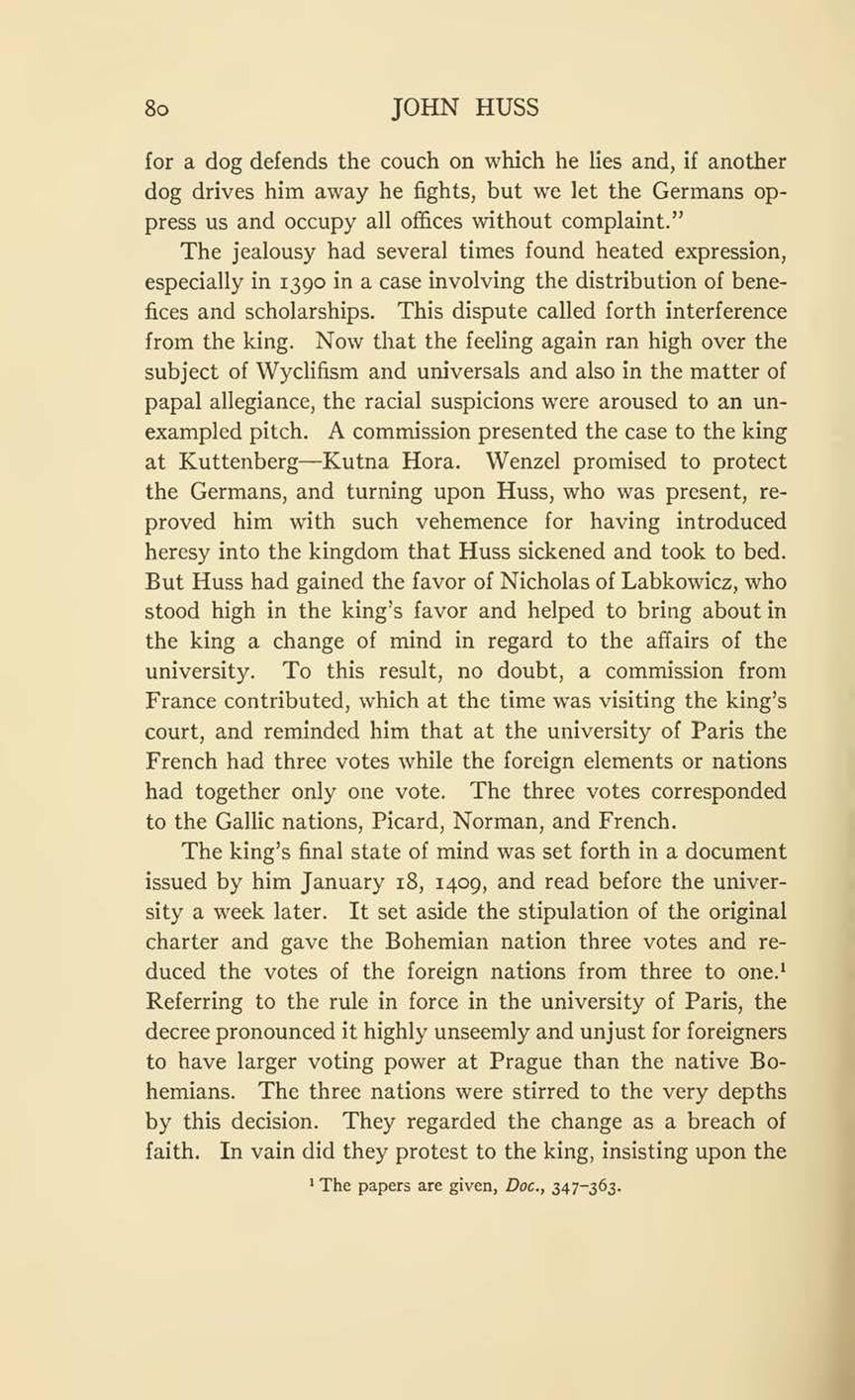for a dog defends the couch on which he lies and, if another dog drives him away he fights, but we let the Germans oppress us and occupy all offices without complaint.”
The jealousy had several times found heated expression, especially in 1390 in a case involving the distribution of benefices and scholarships. This dispute called forth interference from the king. Now that the feeling again ran high over the subject of Wyclifism and universals and also in the matter of papal allegiance, the racial suspicions were aroused to an unexampled pitch. A commission presented the case to the king at Kuttenberg—Kutna Hora. Wenzel promised to protect the Germans, and turning upon Huss, who was present, reproved him with such vehemence for having introduced heresy into the kingdom that Huss sickened and took to bed. But Huss had gained the favor of Nicholas of Labkowicz, who stood high in the king’s favor and helped to bring about in the king a change of mind in regard to the affairs of the university. To this result, no doubt, a commission from France contributed, which at the time was visiting the king’s court, and reminded him that at the university of Paris the French had three votes while the foreign elements or nations had together only one vote. The three votes corresponded to the Gallic nations, Picard, Norman, and French.
The king’s final state of mind was set forth in a document issued by him January 18, 1409, and read before the university a week later. It set aside the stipulation of the original charter and gave the Bohemian nation three votes and reduced the votes of the foreign nations from three to one.[1] Referring to the rule in force in the university of Paris, the decree pronounced it highly unseemly and unjust for foreigners to have larger voting power at Prague than the native Bohemians. The three nations were stirred to the very depths by this decision. They regarded the change as a breach of faith. In vain did they protest to the king, insisting upon the
- ↑ The papers are given, Doc., 347–363.
